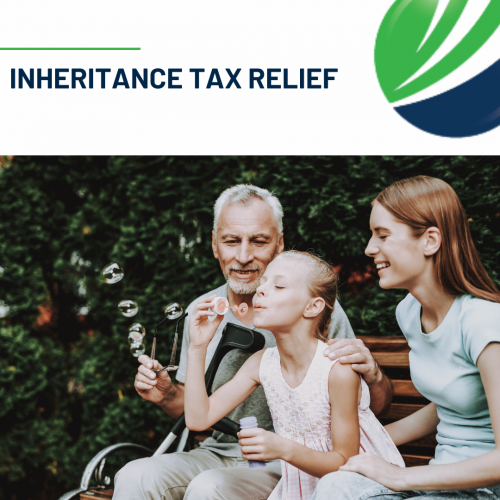Inheritance tax relief

posted 14th February 2022
Planning for the future doesn’t only mean thinking about your business growth. It’s also important to think about what happens when you pass away – and the impact that inheritance tax (IHT) could have for your beneficiaries when handing on the business.
If you own a business, or an interest in a business, your estate may be entitled to relief from IHT on the value of the business you pass on.
Business Property Relief is a valuable concession when passing on a business, allowing you to take your business completely outside of the value of the estate, for IHT planning purposes.
Following the Business Property Relief (BPR) rules
When you pass on a business in your estate, the last thing that your beneficiaries will want is a huge IHT bill to pay. So, how do you stop this happening?
To reduce the impact of IHT, it makes good tax-planning sense to think about BPR at an early stage, and to make sure you can claim the relief and remove the IHT liability. To do this, you and your advisers need a good understanding of the business property relief rules.
Here’s a quick summary of the main Business Property Relief points:
- Your estate will be entitled to BPR at 100% (i.e. full relief) on a qualifying trading business (or an interest in one) as long as the interest was owned for at least two years up to the date of death. The two years includes any previous period of ownership by your spouse if you, in turn, inherited it from them.
- A trading business is one in which non-trading activities are less than half of the total activities carried out. A company with 51% trading and 49% non-trading would attract 100% BPR, but one with 49% trading and 51% non-trading would get no BPR.
- Many businesses will be self-evidently either trading or non-trading companies. But there are grey areas, such as property development businesses, which may rent out some properties they haven’t been able to sell.
- If individual assets within an otherwise-qualifying company are not used for the business’s trading purposes in the two years prior to death, and are not required for future trading purposes, those assets are specifically excluded from BPR. An example of this may be surplus cash that’s gradually built up over many years.
- Unquoted shares held for more than two years in companies listed on the Alternative Investment Market (AIM) also qualify for 100% BPR.
- You may be able to claim relief at a reduced rate of 50% on certain other assets, including land, buildings, or machinery owned by the deceased and used in a business they were a partner in or controlled.
Talk to us about planning for Business Property Relief
When we sit down to talk about tax and estate planning, BPR will be one of the key areas where we can help you to reduce tax outlay. Where you have both trading and non-trading business activities, we’ll help you get your structure right and maximise the potential benefits of BPR.
Talk to us about your estate planning and making sure your business is structured in a way that avoids any unnecessary loss of this very important relief.


